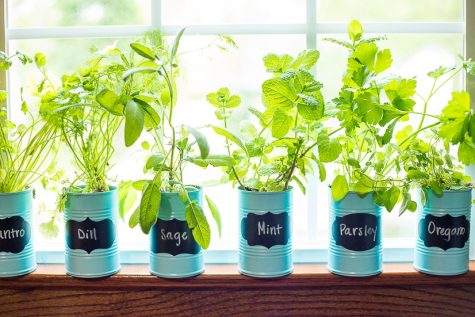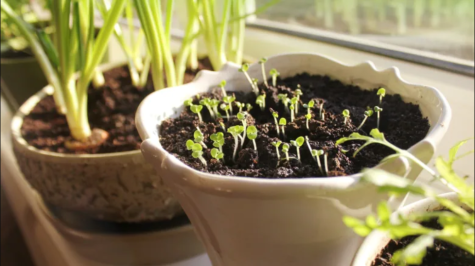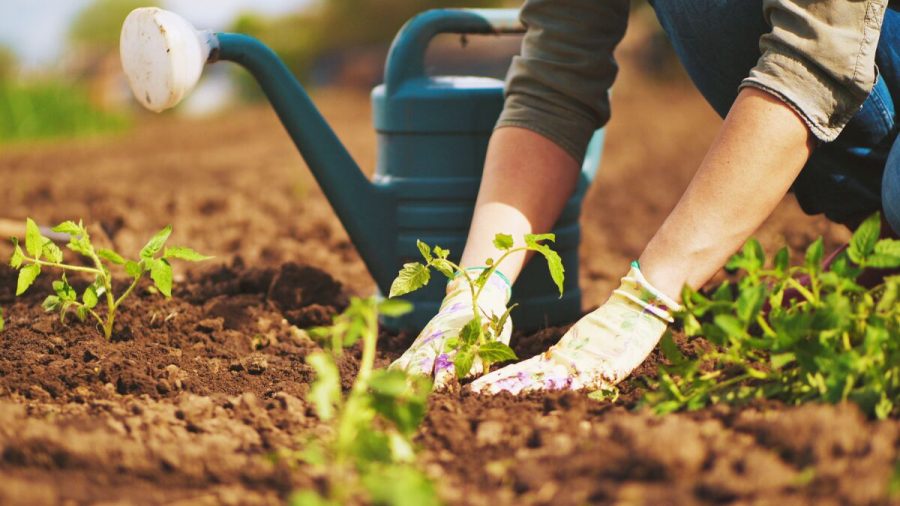A College Student’s Guide to Gardening
Spring is here, which means gardening season is quickly approaching. There’s nothing better than locally grown fresh fruits and vegetables: they have more robust flavors, lack pesticides or herbicides, and have been grown and harvested with love. Like everyone else, college students want to enjoy and benefit from the perks of fresh veggies. However, being a full-time student can mean having less access to fresh food than other populations. Aside from visiting local fruit and vegetable stands near campus—which can become quite pricey if the products are heirlooms or have been transported over long distances—college students can create access to fresh food by growing their own. Yes, you heard right. . . gardening is still a possibility for college students! Keep reading to discover the various ways you can partake in the benefits of gardening from the comfort of your dorm.
Windowsill Herb Gardens

One of the easiest and cheapest ways to get acquainted with gardening is by starting a windowsill herb garden. All you need for this project is access to a window that gets full to partial sunlight, small containers with potting soil (even recycled cans or bottles will work!), and fresh herbs from your local supermarket. Herbs are a low-maintenance plant that can be harvested again and again. They can be used as garnishes or cooked into your meals for the ultimate fresh seasoning. Common herbs that grow well on windowsills include basil, dill, cilantro, sage, mint, oregano, rosemary, and parsley.
First, take your fresh herbs from the store and chop off a small portion of the bottom stem. Make sure that you cut away any brown or dried-up stems. Place the green, freshly chopped stems into a glass of water and allow them to propagate (grow roots). This will take a few days. Once your herbs have developed a healthy root system, plant them in your containers. Water your herbs 2-3 times a week or when the top inch of soil is dry. Before you know it, you’ll have a windowsill full of herbs ready to harvest! Cut off a few sprigs at a time for cooking or eating and leave the main stem of the plant intact so it can continue producing new growth.
Seed Starting

If you’re confident in your gardening skills and want to take dorm gardening a step further, consider starting seeds on your windowsill. Depending on the quantity and the type of seeds you grow, this project may require that you have a designated place for outdoor gardening when you return home. If given the right conditions, fruit and vegetable seeds will grow quickly and bountifully!
To start seeds for your garden, you will need packs of fruit or vegetable seeds (typically available at grocery stores for less than $1.00 per pack), potting soil, and several small containers (biodegradable seed cells like these are a good choice). A spray bottle for watering your seeds is also recommended but not required. Good seed choices for beginners include fruits like strawberries and vegetables like lettuce, tomatoes, cucumbers, and carrots. Remember that seed cells are a great place to start but should not be your plants’ permanent home. For fruits and vegetables to thrive, they need to be transplanted into bigger containers or a raised garden bed.
The trick to getting your seeds to grow is to provide them with a lot of bright, direct sunlight. Unlike houseplants, which may get scorched if they receive direct sunlight for prolonged periods, seeds require intense sunlight to “wake up” from dormancy and begin to grow. Seeds also like to be consistently damp but not soaked—this is why using a spray bottle to moisten the dirt gently is preferred. Seedlings will begin to appear 2-3 weeks after planting. After 1-2 months, the seedlings will be big enough for transplanting. Because growing from seed is the longest process for growing plants, give yourself enough time to prep your future garden.
Gardening should be a fun and relaxing process, especially for college students. Take time to appreciate your plants’ growth cycle and watch how they thrive in the right conditions. Check-in on your plants regularly, and if you’re feeling generous, share some of your harvest with others. By starting seeds or implementing a windowsill herb garden, you can enjoy the benefits of fresh, organic food in no time. Happy planting!








